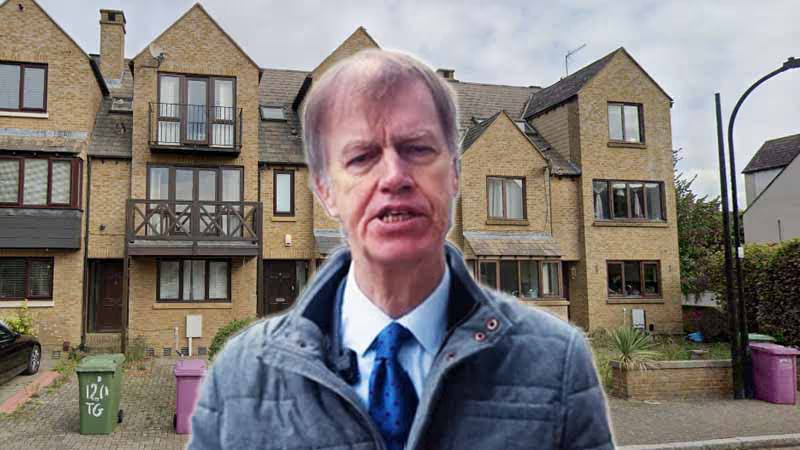Landlords hoping that Labour might water down its controversial Renters’ Rights Bill have had their hopes dashed after the legislation completed what is likely to be its final stage in parliament.
Housing minister Matthew Pennycook (main image) said last night: “This Government was elected with a clear mandate to do what the Conservatives failed to do in the last Parliament—namely, to modernise the regulation of our country’s insecure and unjust private rented sector, and empower private renters by providing them with greater security rights and protections.
“Our Renters’ Rights Bill does just that, and it needs to receive Royal Assent as quickly as possible so that England’s 11 million private renters can benefit from its provisions.”
Nearly two dozen key non-Government amendments to the Bill had been tabled but the bulk of these were rejected.
Therefore, it now it remains to be seen whether the Bill will now go through the ‘ping pong’ process of returning to the Lords for any of the rejected amendments to be modified and then resubmitted.
All the main measures within the Bill stand without being watered down including the abolishment of Section 21, introduction of the Decent Homes Standard, limits on rent increases and an end to bidding wars, the introduction of a new ombudsman for renters/landlords, a public database of properties and the abolishment of Assured Shorthold Tenancies.
Pennycook justified rejecting most of the amendments tabled in the Lords by claiming landlords would take advantage of any concessions within the legislation to behave poorly.
Insecurity

Many speakers reiterated that too many renters face insecurity of tenure and shadow housing minister James Cleverly (pictured)vwas one of the lone voices urging caution.
“The Bill risks driving private landlords out of the sector, reducing the supply of private rented accommodation and pushing up rents for those in the private rented sector,” he said.
“Limiting the supply of such accommodation means limiting the options for tenants in the private rented sector and leaving them worse off.
“While I have no doubt that the Bill is full of good intentions, it is poorly though through and counterproductive.”
“While I have no doubt that the Bill is full of good intentions, it is poorly though through and counterproductive.”
One of the more controversial issues tackled by the Bill is pets in lets – the legislation will stop landlords ‘unreasonably’ refusing permission for pets in their rental properties but despite the efforts of the Lords, and campaigners like Jen Berezai, they will not be able to ask tenants to take out pet damage insurance or require them to pay a larger deposit.
Pennycook said neither were required, adding that: “We already have the delegated powers necessary, under the Tenant Fees Act 2019, to allow higher deposits for tenancies with pets, should evidence come forward to the contrary,” he said.
The other Lords amendments rejected by Pennycook included:
• Expanding the possession ground 4A to also apply to one-bedroom and two-bedroom properties let to students.
• Extending possession ground 5A to other types of agricultural workers, regardless of their employment status.
• Introducing a new possession ground 8A which would allow a landlord to seek possession of their property where it was needed to house a carer for the landlord or for a member of the landlord’s family.
• Reducing from 12 months to six months the restricted period during which landlords cannot relet their property. And exempting shared owners from the 12-month restriction.
• Enabling a primary authority to give assured advice to lettings agents on achieving compliance under the Tenant Fees Act 2019.
• Requiring local authorities to meet the criminal rather than civil standard of proof when imposing financial penalties for breaches of the rental discrimination and rental bidding requirements.
Pennycook waived through his own amendments to the Bill including:
• Giving landlords three months to evict tenants as long as possession notices are served before the Bill becomes law;
• Giving the Secretary of State powers to amend the Section 13 rent increase rules at a later date if a backlog of cases builds up in the courts;
• Enabling landlords to keep rent in advance for existing tenancies once the legislation goes live;
• Exempting PBSA accommodation from the Bill and allowing councils to enter properties to inspect conditions without prior notice.
Assuming the Bill is not returned with further amendments by the Lords, it will then be sent to the King for Royal Assent.
Secondary legislation will need to be commenced to enact many of its measures. But the introduction of open-ended tenancies during which tenants need only give two months’ notice at any time will go live immediately, as well the sweeping aside of the current AST system.
Reaction
Greg Tsuman, MD for Lettings, Martyn Gerrard Estate Agents

“As expected, the amendments that were not government-backed have not been passed. This is unfortunate, as they were some injections of common sense into the Bill, which as it stands reveals the Government’s fundamental misunderstanding of the Private Rented Sector.
"A more consultative approach would have yielded a much better piece of legislation.”















.avif)
.avif)






.avif)














Comments